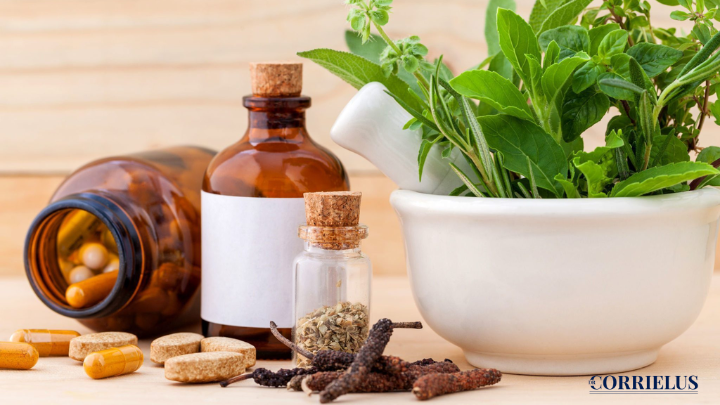In Holistic Approaches to Preventive Cardiology, the integration of traditional practices, particularly herbal medicine and supplements, has garnered increasing attention. As individuals become more conscious of their health and seek holistic approaches, the role of herbal remedies in cardiovascular well-being is gaining prominence. Let’s look into the world of herbal medicine and supplements, exploring their potential benefits in preventing heart-related issues.
Move on a transformative journey towards heart health through Holistic Approaches to Preventive Cardiology. In cardiovascular medicine, the paradigm is shifting towards embracing a more comprehensive and natural strategy for the prevention and treatment of cardiovascular disease. Central to this approach are the integrative elements of holistic cardiology, where the synergy of herbal medications, herbs, and dietary supplements takes center stage.
Understanding the intricacies of the heart medications list becomes pivotal, especially when considering the incorporation of herbal remedies and supplements. Individuals seeking a personalized and holistic path to heart wellness can benefit from collaborating with a knowledgeable preventive cardiologist near them. This collaborative journey explores the potential benefits of holistic cardiology, offering insights into effective strategies that go beyond conventional treatments for heart disease medications. It’s time to prioritize your heart health holistically and discover the harmonious balance between traditional and natural approaches.
Understanding Herbal Medicine in Preventive Cardiology:
Herbal medicine, also known as botanical medicine, involves the use of plants, plant extracts, and plant-based substances to promote health and alleviate various conditions. In the context of preventive cardiology, several herbs have shown promising cardiovascular benefits. Herbs and dietary supplements are crucial if needed if you are booking for preventive cardiologist near me.
Hawthorn (Crataegus): Widely recognized for its cardiovascular advantages, hawthorn is believed to improve blood flow, reduce blood pressure, and enhance the heart’s pumping ability. It contains flavonoids with antioxidant properties that may contribute to its protective effects on the heart.
Garlic (Allium sativum): Garlic has been a staple in traditional medicine for centuries. Allicin, a compound found in garlic, is credited with various cardiovascular benefits, including the potential to lower cholesterol levels and blood pressure.
Turmeric (Curcuma longa): The active ingredient in turmeric, curcumin, possesses anti-inflammatory and antioxidant properties. It may contribute to cardiovascular health by improving endothelial function and reducing inflammation.
Supplements in Preventive Cardiology
In addition to herbal remedies, supplements play a significant role in preventive cardiology. These are often concentrated forms of vitamins, minerals, and other bioactive compounds that are crucial for heart health.
Omega-3 Fatty Acids: Found in fatty fish and certain nuts and seeds, omega-3 fatty acids have been linked to a lower risk of heart disease. Supplements, such as fish oil capsules, provide a convenient way to ensure an adequate intake of these heart-healthy fats.
Coenzyme Q10 (CoQ10): This antioxidant is naturally produced by the body and plays a crucial role in the production of energy in cells. CoQ10 supplements may support overall heart health and are especially beneficial for individuals on statin medications, which can deplete CoQ10 levels.
Magnesium: Essential for various physiological functions, magnesium is involved in muscle and nerve function, blood glucose control, and blood pressure regulation. Adequate magnesium levels may contribute to a lower risk of cardiovascular issues.
The Synergy of Herbal Medicine and Supplements
Combining herbal medicine with targeted supplements can create a synergistic approach to preventive cardiology. For instance, a regimen that includes hawthorn for its vasodilatory effects, garlic for cholesterol management, and omega-3 fatty acids for overall cardiovascular support may offer a comprehensive strategy.
Key Considerations and Precautions
Consultation with Healthcare Professionals: Before incorporating herbal medicine or supplements into a preventive cardiology plan, individuals should consult with healthcare professionals, especially if they are on prescription medications. Interactions between herbal remedies, supplements, and medications need careful consideration.
Quality and Standardization: Ensuring the quality and standardization of herbal products is essential. Standardized extracts provide a consistent dose of active compounds, enhancing reliability in their efficacy.
Personalization: Preventive cardiology is not a one-size-fits-all approach. Personalization based on individual health needs, existing conditions, and lifestyle factors is crucial for an effective preventive strategy.
A word from the doctor —
Herbal medicine and supplements offer a promising avenue for preventive cardiology, embracing the wisdom of traditional practices and the advancements of modern science. Integrating these natural approaches into a comprehensive cardiovascular wellness plan, with due diligence and professional guidance, can contribute to maintaining a healthy heart and preventing cardiovascular issues. As with any health-related decisions, an informed and personalized approach is key to reaping the benefits of herbal medicine and supplements in the realm of preventive cardiology.
Schedule a consultation with Dr. Sanul Corrielus right away if you have questions about your heart health!



